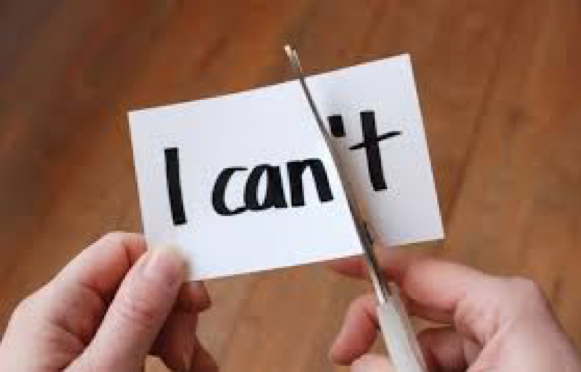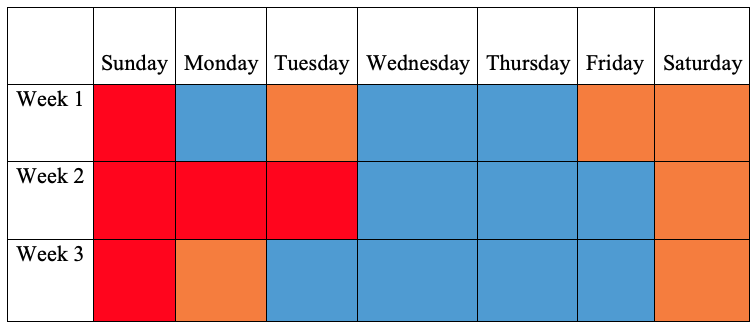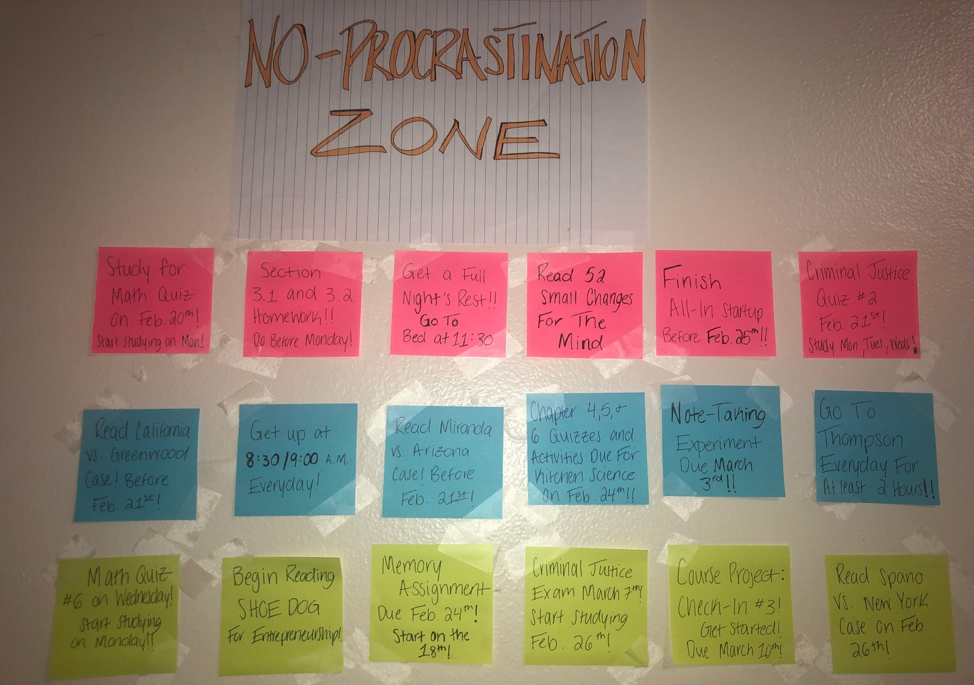Procrastination (S)Kills

Do you ever find yourself procrastinating assignments day after day until it gets so close to the deadline that you’re practically praying for a miracle—to get the assignment done on time? Me too. Procrastination is all too relatable for many students. Although procrastination is a terrible habit, once you get into the constant cycle of putting things off till last minute, you find that procrastination becomes addicting. Telling yourself you’ll just do the assignment another time, when you’re feeling more motivated, is all fun and games till you find yourself frantically finishing an assignment about to lose your mind because you’re so stressed out. Unfortunately, I have found myself repeating this cycle over and over till I just couldn’t take it anymore. I had to do something about it, so I set a goal.
“When you feel as though you are floundering or aren’t quite sure where life is going, setting goals can help you get back on the course.”
-Brett Blumenthal, 52 Small Changes For The Mind
The First Step
Finding a goal to set for yourself is always easy isn’t it? The tough part is actively taking steps towards improving every day in order to meet that goal. When I was asked to challenge myself this semester and create a goal I wanted to work to accomplish, I knew right away what I was going to focus on—procrastination. The goal I chose to pursue for this project was to,

“Stop doing everything school-related last minute. Get assignments done days before it’s due and study for quizzes and exams 3 days before the quiz/exam is.”
For obvious reasons, this goal was extremely easy for me to pin out and for even more obvious reasons this goal was incredibly challenging for me. As you can imagine, procrastinating for nearly 3 years takes a toll on your way of doing things. The next step after creating a goal for this project was to choose a book that would further your process of seeking your goal successfully.
The Second Step: 52 Small Changes For The Mind
The Book I chose to read and to use to accomplish my goal, was 52 Small Changes For the Mind by Brett Blumenthal.

I chose this book because I knew that in order to change my ways of procrastinating and putting nearly everything off till last minute, I needed to better my mind. I recommend this book to everybody, even if you’re not a 3-year procrastinator like myself. This book connected to my goal of cutting out procrastination because it focused on topics such as setting your phone down and focusing on the one task ahead of you, or kicking indecision out of your life, or silencing your negative self-talk. You’re probably asking yourself how those topics relate to my goal of fending off procrastination? When I began to closely monitor myself and how I continuously found myself doing assignments the day before it was due or even the night it was due, I identified the causes. I found that my phone or even any type of technology was what I would reach out to when I wanted nothing to do with the assignment I really should have been doing instead. I also found that indecision was another big part of it. I could never decide on a specific day to sit down and dedicate my time to completing my assignments. I would always only remind myself of the day it was due, not the day I should be doing the assignment. Another discovery I made was that my procrastination would stem off of my inner self-talk. It would always be something negative like, “I hate sitting down at this desk and thinking about how to solve this math problem, I’m just going to take a nap instead and do it later on tonight.” Once I identified the things that were sources that my procrastination would stem off of, I began using ideas from 52 Small Changes For The Mind to take that third step in seeking my goal.
The Third and Final Step
The third step I took in pursuing my goal was to act on the challenges I faced that put me in the position of procrastination. Some of the various strategies I used from 52 Small Changes For The Mind were: journaling, setting your phone aside and doing one task at a time, kicking indecision, and silencing my negative self-talk. The book suggested to take pen to paper when you couldn’t get thoughts or feelings out of your head and I did just that. Journaling helped me to clear my mind when I couldn’t focus on my assignments and I found that I came to eventually enjoy journaling on a daily basis. Setting my phone aside was the most challenging obstacle I faced because I always multi-tasked with social media and any type of school work. I always look to my phone when I am bored, or of course when I don’t want to do something ~ AKA my homework. The book suggested to focus on one task at a time and cut all distractions so when I put my phone aside, I was guaranteed to get my work done. I was successful in kicking my indecision my writing down my assignments in my college planner. Silencing my inner negative self-talk had to be the second-most challenging obstacle that I faced. I struggled with this because I tend to be unnecessarily hard on myself and always think the worst rather than believing in myself. I silenced my negative self-talk by what the book suggested, reminding myself of all the positive things in my life right now.
Tracking
Procrastination Tracker

Code: Days I finished homework last minute, Days I put off homework for a different day, Days I worked on homework days before it was due
-The First Method I chose to track my progress of reaching my goal was the chart method. As you can see I kept track of the days I finished my homework last minute, the days I worked on homework days before it was due, and the days where I told myself I would do my homework on a different day.

The second method I chose was a wall promoting no procrastination of sticky notes. Every time I thought of something I had to do, I would write in on a sticky note and stick it to my No-Procrastination Zone. Every day I walked in the door or sat at the desk next to my motivation wall, I psychically be reminded of the schoolwork I needed to do.

The third method I chose for a tracking method was using my college planner on a daily basis. Since February 18th, the start of the three-week tracking method experiment, I wrote down upcoming assignments, assignments I needed to start on certain days, the days I needed to study, and also upcoming quizzes and exams. This helped me immensely. By writing down all the information on canvas every week I was able to put that notion in my head of getting my school work done ahead of time.
Major Takeaways
The lessons I learned from this project, or in other words the takeaways, are very important to me to this day. The lessons I learned are: focus on practicing positive self-talk, focusing on one task at a time is key to academic success, set your phone aside in order to truly clear your mind, and having a set plan as to when you are going to start and finish an assignment. Insights that will be important to me from now on will be that academic success comes with challenging yourself and focusing on being a better you. The most essential advice I can share to you is to kick a bad habit once you see it taking control of your life. Do not let a habit make or break you. Procrastination is a tough habit to break, I know this for a fact, but it is not impossible! Take it one day at a time.
